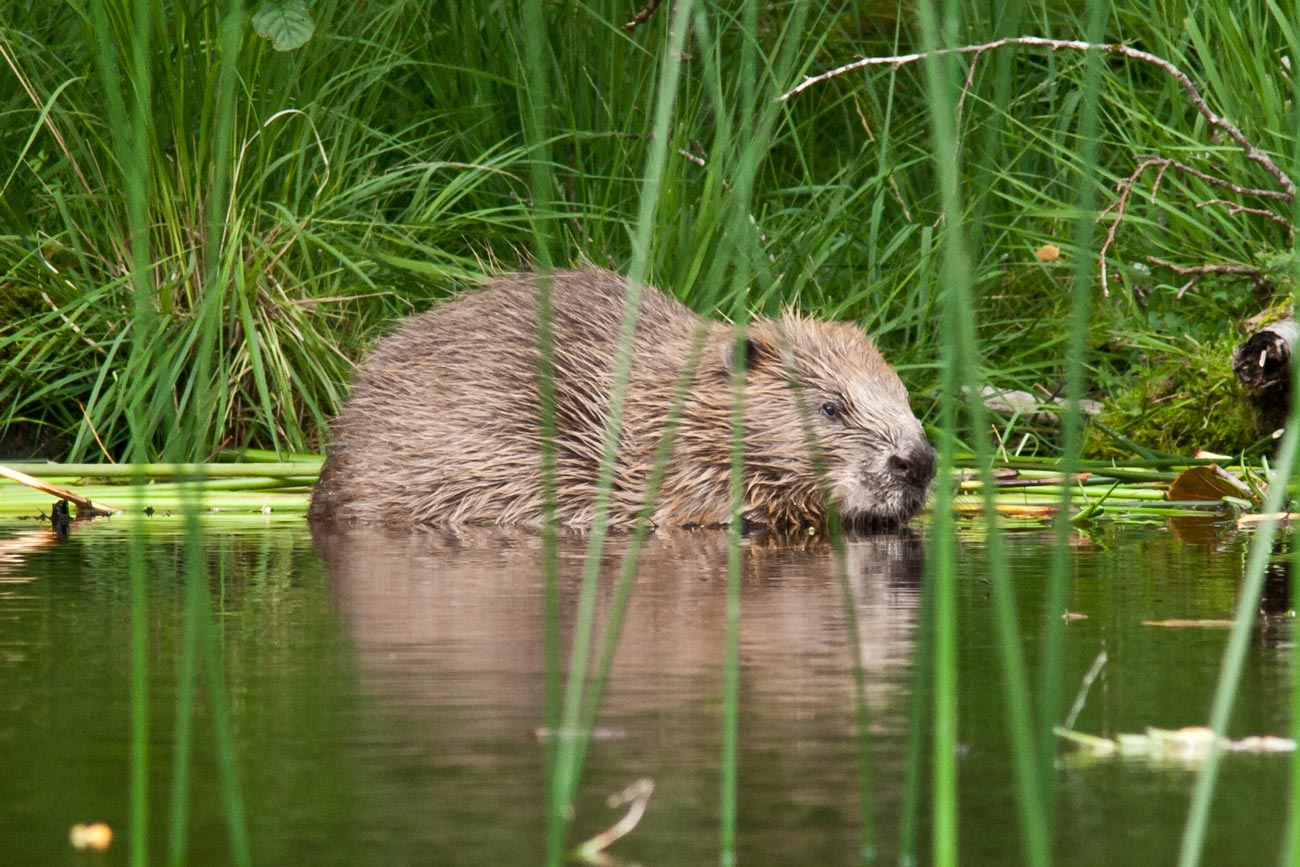Beaver to be protected by law in England
Eurasian Beaver is to receive protected status in England, as plans to release the species into the wild across the country have been set out in a consultation.
The news marks a significant step towards establishing native populations across the country, which conservationists and politicans agree will benefit the environment, economy and people.
Beavers can play a major role in helping to restore nature to England. Widely referred to as 'ecosystem engineers', they create dams from trees, mud and rocks, which raise water levels, creating pools and wetland habitats which support the recovery of a wide range of native species.

Eurasian Beaver is set to become a protected species in England (Steve Gardner / Scottish Wildlife Trust).
Under the Government's proposals, applications for licences to release beavers into the wild would need to meet certain criteria, including demonstrating positive stakeholder engagement and local buy in, and proof that a comprehensive assessment has been undertaken of the impacts on surrounding land, the water environment, infrastructures, habitats, and protected species. Projects must also ensure that support for landowners and river users is put in place.
The consultation follows a successful reintroduction in Devon, which over five years brought a wealth of benefits to the local area and ecology, including enhancing the environment at a local reserve, creating wetland habitat and reducing flood risk for housing downstream.
Secretary of State, George Eustice, said: "We are committed to providing opportunities to reintroduce formerly native species, such as beavers, where the benefits for the environment, people and the economy are clear.
"But we also understand that there are implications for landowners, so we are taking a cautious approach to ensure that all potential impacts are carefully considered."
Plans to give Eurasian Beaver legal protection in England will make it an offence to deliberately capture, kill, disturb or injure the species, or damage breeding sites or resting places.
The 12-week consultation is seeking views on: potential future releases into the wild; current and future releases into enclosures; and mitigation and management of beaver activity or impacts in the wild, including the River Otter population and all other existing wild living beaver populations.
Chair of Natural England, Tony Juniper, commented: "The launch of Defra's consultation today marks an important and positive moment for the future of these wonderful animals in England. Beavers are not only fascinating creatures in their own right, but are also ecosystem engineers that will play a key role in restoring and linking habitats, in the process bringing many environmental benefits, like we have seen in the highly successful River Otter trial in Devon – hugely positive transformations, including the creation of wetland habitat, improving water quality and smoothing flood peaks.
"I encourage everyone to respond, so that the way we shape the future of wild Beavers reflects as many perspectives as possible."
The consultation is now live at gov.uk and members of the public have until 17 November to have their say about the future of this keystone species.

